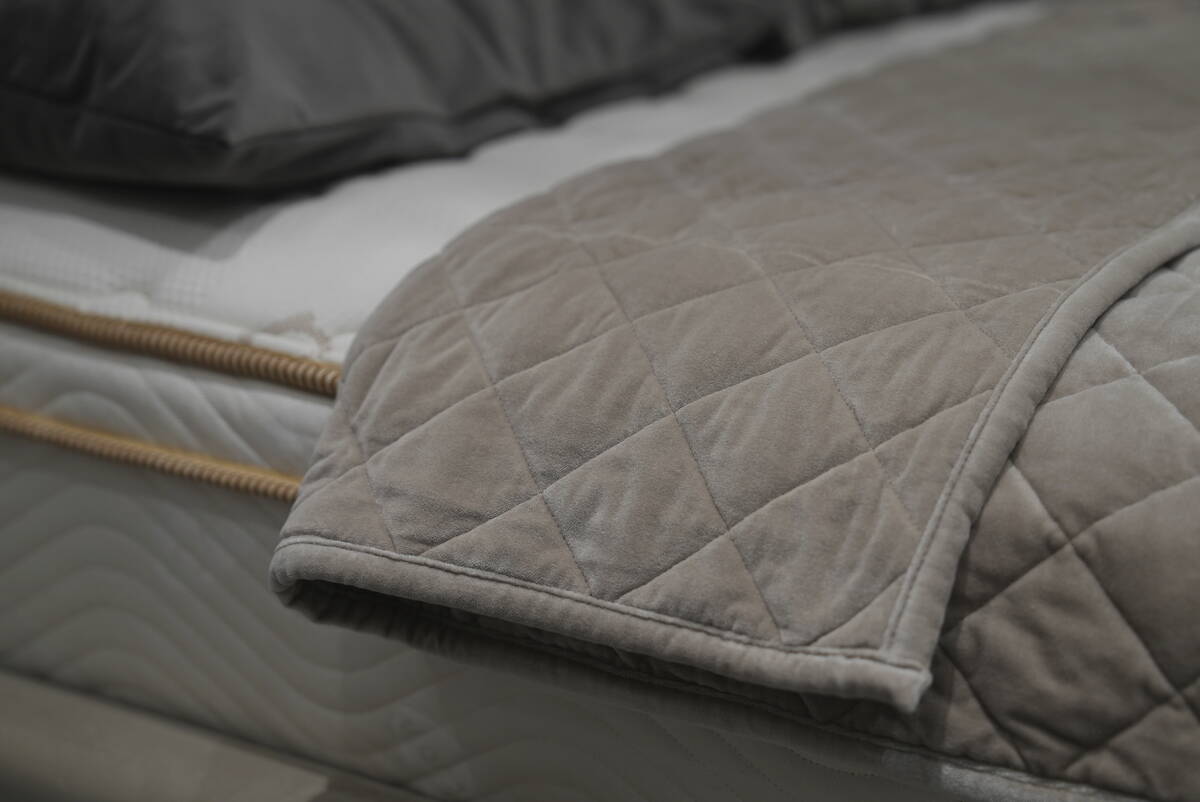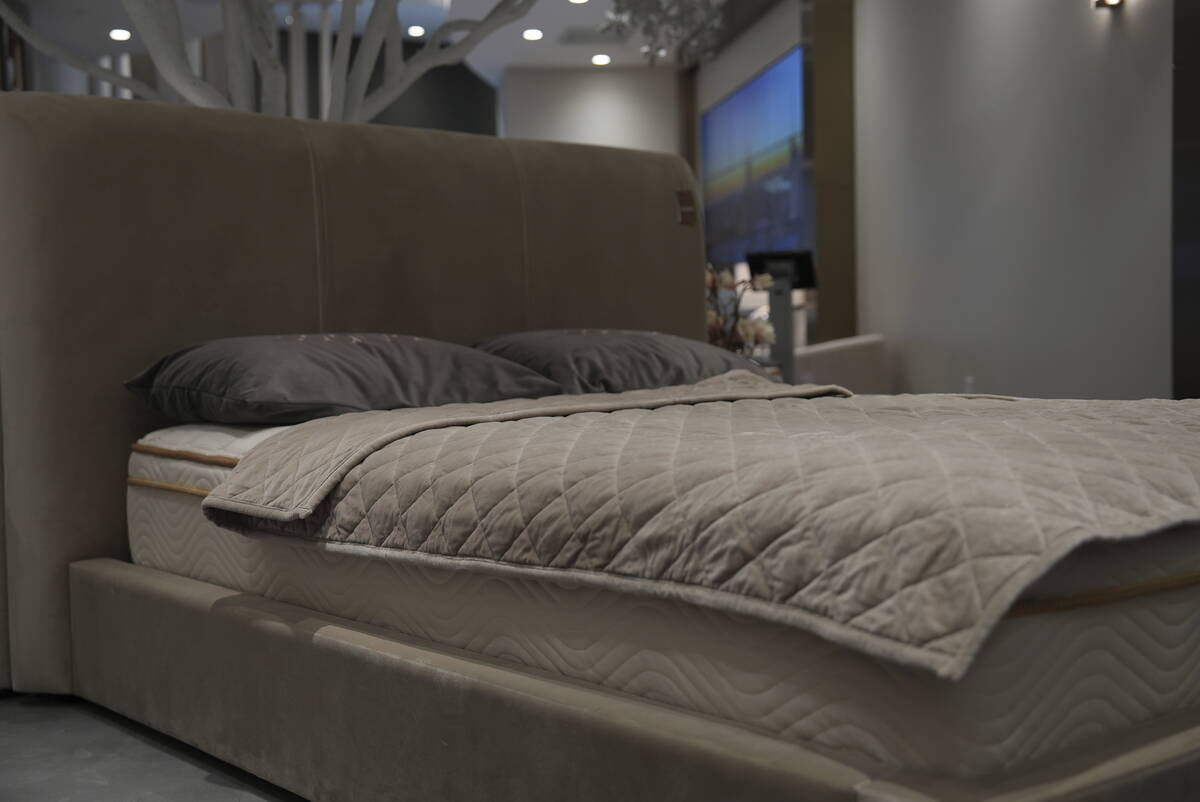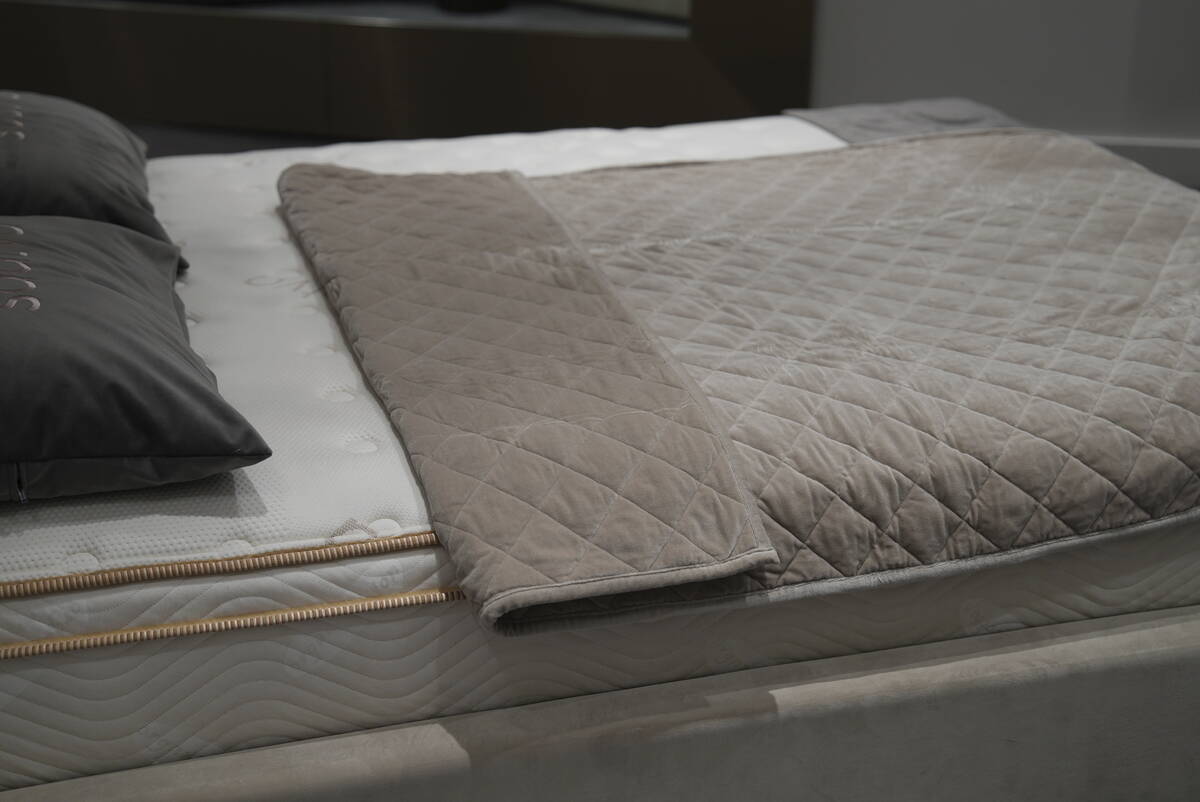Do weighted blankets really help you sleep better?
Rhonda James was skeptical when her husband ordered a weighted blanket for her online. But five minutes after she wrapped it around her body, she zonked out.
“It felt like a really big hug,” said James, a banker in Charleston, South Carolina.
As outside temperatures grow chilly, weighted blankets can be a popular choice to warm up. Some people say the added pressure helps them soothe the worries of the day and get to sleep faster.
But research on the effectiveness of weighted blankets is limited. Here’s what to know.
What is a weighted blanket?
Weighted blankets come with extra heft in the form of glass beads, pellets, cotton or another filling. Scientists haven’t studied exactly how the blankets work, but they have a few ideas.
The blankets’ firm touch may calm the brain’s fight-or-flight response, said Dr. Neal Walia, a sleep medicine expert at UCLA Health.
“The evenly distributed weight on you tells your body, ‘Hey, you’re in a calm environment,’ ” he said.
The extra pressure also might signal the brain to release what’s called the love hormone, also known as oxytocin. It’s produced during bonding and cuddling and can also lower anxiety, Walia said.
How do I use a weighted blanket?
For most healthy adults, experts say to choose a blanket that is about 10 percent of their body weight. So, a 150-pound person may opt for a 15-pound blanket.
Weighted blankets are not recommended for babies or toddlers as they can hinder movement and breathing.
People with sleep apnea, sleep-related disorders or respiratory problems should check with a doctor before using a weighted blanket.
The blankets aren’t for everyone, and each person gets the best out of their blanket differently. For example, some might find them too hot to use during warmer months.
And the extra swaddling comes at a cost: Quality weighted blankets can range from $50 to over $300 depending on the size, weight and material.
James takes hers out of the closet to unwind when she’s watching TV or sipping a glass of wine.
Lucy Taylor, a freelance writer from Wales, uses her blanket to fall asleep when her anxiety spikes during the winter.
“If my body’s relaxed, my mind follows suit,” she said.
Can they improve sleep?
There isn’t a ton of research on whether weighted blankets actually work, and the studies that do exist are on small groups. Most studies don’t focus on the average sleeper. Instead, they investigate whether weighted blankets can help people with chronic sleep problems, mental health conditions or developmental disorders.
There are some hints that weighted blankets can help with anxiety, chronic pain and sleep. But the research isn’t conclusive.
A study on 120 people with insomnia found that the weighted blankets helped them sleep better compared with a light blanket. Another study on 67 children with autism found the weighted blanket didn’t affect their sleep at all — but the children and their parents preferred it to a regular blanket.
And a third study on 94 adults with chronic pain found that a heavier weighted blanket didn’t affect sleep but was better at reducing pain compared with a lighter one.
Even though there’s not yet strong evidence to back up the benefits of weighted blankets, sleep experts say there’s no harm in giving them a try if you’re willing to splurge.
Dr. Daniel Barone, a sleep medicine expert at Weill Cornell Medicine, suggests it to his patients after other traditional therapies and medicines.
“If it doesn’t hurt and it may help, it’s worth a shot,” he said.




















